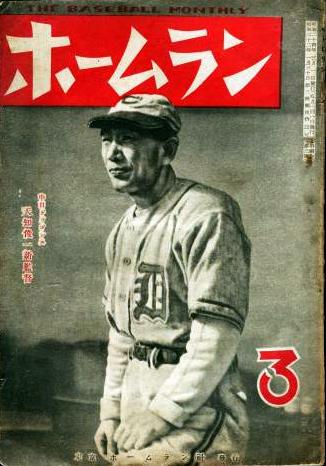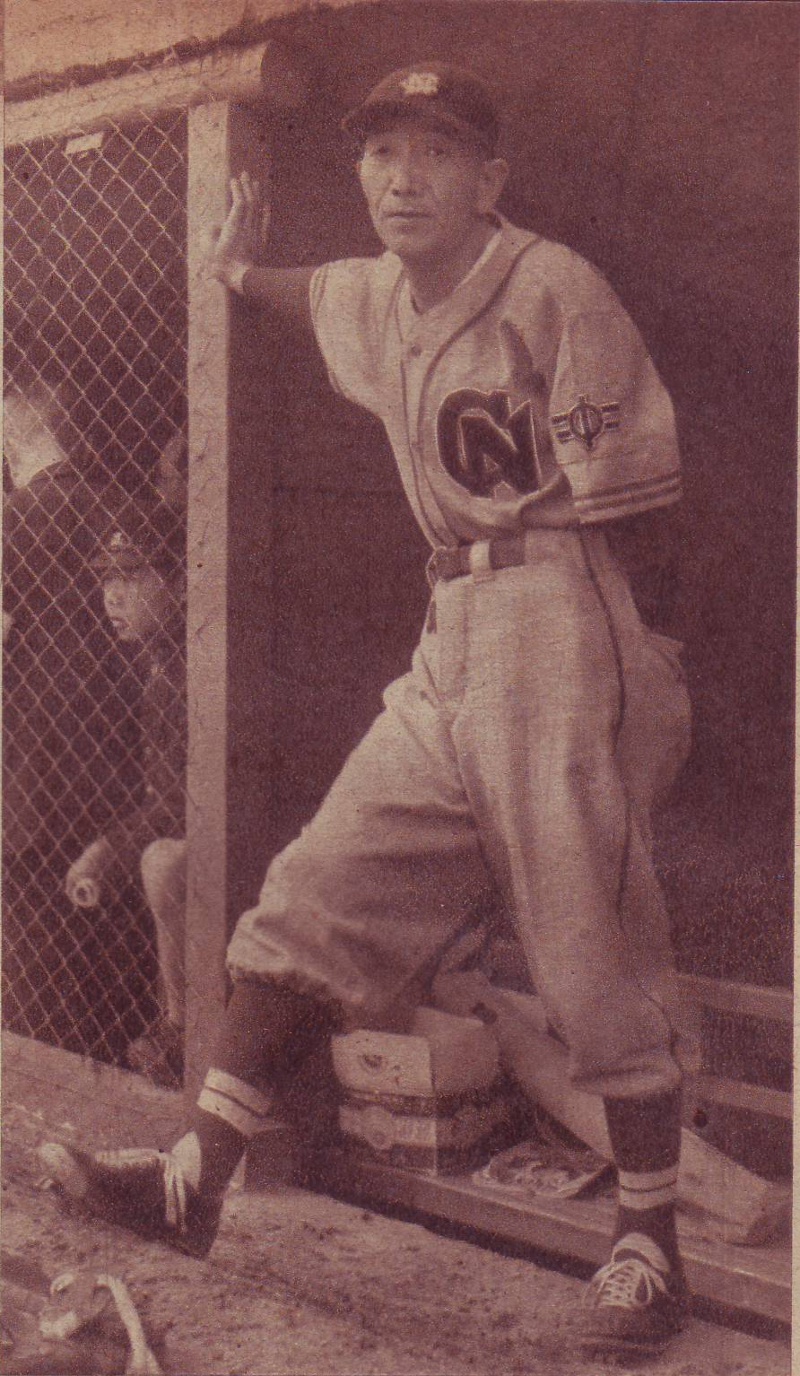1. Early life and amateur career
Shunichi Amachi's early life was marked by a challenging academic journey, which eventually led him to a significant role in amateur baseball as both a player and later a respected umpire and coach.
1.1. Education and early life
Amachi's academic path was unconventional. He initially enrolled at the former Koyo Junior High School but transferred to Kokyokusha Junior High School after two years. Following his graduation from Kokyokusha, he sought to advance to the preparatory course of Meiji University. However, he was denied admission because a three-year junior high school completion did not qualify him for entry at the time. Consequently, he re-enrolled in Shimono Junior High School (now Sakushin Gakuin High School), where he completed four years of study before successfully gaining admission to the Meiji University preparatory course. During his time at Meiji University, Amachi played as a catcher, forming a battery with Yoshio Yuasa湯浅禎夫Japanese, who would later become a manager for the Mainichi Orions.
1.2. Amateur baseball activities
Amachi's involvement in amateur baseball extended beyond his playing days at Meiji University, transitioning into significant roles as an umpire and a coach, where he made lasting impacts on the sport.
1.2.1. Umpiring career and the Yashogawa Balk Incident
Amachi's one-year senior at Meiji University, Nobuaki Nidegawa二出川延明Japanese, recognized the need for improved umpiring in university baseball. Nidegawa would assign Amachi ten challenging questions on baseball rules every morning as "homework," requiring him to solve them before practice began. This rigorous training helped Amachi master the rules, leading him to become a dedicated umpire for the Tokyo Big Six Baseball League in 1929. In the fall of that same year, he served as the home plate umpire for a Waseda-Keio match at Meiji Jingu Stadium, which was notably attended by Emperor Hirohito for the first time.
However, his umpiring career with the league came to an end in the spring of 1931 due to the Yashogawa Balk Incident (八十川ボーク事件Yashogawa Bōku JikenJapanese), where six dedicated umpires, including Amachi, collectively resigned to take responsibility for the controversial call. Following this, Amachi worked as a reporter for the Hochi Shimbun newspaper while continuing to officiate amateur baseball games, including those at the Koshien Tournament. He served as the home plate umpire for the final match of the 1939 Summer Koshien Tournament, where Seiichi Shima嶋清一Japanese of Kaiso Junior High School achieved a remarkable feat of two consecutive no-hit, no-run games. Amachi later developed a close friendship with Shima when the latter advanced to Meiji University, with Shima affectionately calling him "Amassan" (あまっさんJapanese). Amachi also officiated the final game between Heian Junior High and Tokushima Commercial School in the 1942 National Junior High School Baseball Tournament, organized by the Ministry of Education, often referred to as the "phantom Koshien" due to World War II.
1.2.2. Coaching at Teikyo Commercial School
Following his umpiring career, Amachi took on a new role as an English teacher and baseball coach at the former Teikyo Commercial School (now Teikyo University High School). It was during this period that he significantly influenced Shigeru Sugishita杉下茂Japanese, who would become a future baseball legend. Even after Sugishita entered Meiji University, Amachi continued to mentor him privately. Notably, Amachi taught Sugishita the forkball, a pitch he had learned from an American baseball team that visited Japan in 1922.
2. Professional managerial career
Shunichi Amachi's professional career as a baseball manager spanned several years, primarily with the Chunichi Dragons, but also including a brief tenure with the Nishitetsu Lions, culminating in a historic Japan Series championship.
2.1. First tenure with Chunichi Dragons
In 1949, concurrent with his protégé Shigeru Sugishita joining the Chunichi Dragons, Amachi was appointed as the team's manager. He managed the Dragons for two seasons, 1949 and 1950. In 1952, he was moved to a supervisory role as general manager without executive power. For the 1951 season, Amachi also managed the Nishitetsu Lions.


2.2. 1954 Japan Series championship
Amachi returned to manage the Chunichi Dragons in 1954, leading the team to their first Central League championship and ultimately their inaugural Japan Series title. This achievement was particularly significant as Amachi was a non-player manager, a unique feat in Japanese professional baseball that remains unparalleled as of 2023.
The moment the Dragons secured the Japan Series championship was deeply emotional for Amachi, who was unable to stop his tears. As his players lifted him for the traditional celebratory toss, he continued to wipe away tears. His players, deeply moved by their "people-oriented manager's" achievement, were also overcome with emotion, with most of them shedding tears alongside him. Following this historic victory, Amachi resigned from his managerial position, taking on the role of team vice representative in 1955. His decision to retire immediately after winning the Japan Series was also unprecedented in Japanese professional baseball at the time, a move later mirrored by Koji Akiyama秋山幸二Japanese in 2014 after leading the Fukuoka SoftBank Hawks to a championship.
2.3. Subsequent managerial and coaching roles
Amachi returned for his third managerial stint with the Chunichi Dragons in 1957. This return was reportedly prompted by earnest requests from veteran players, including Michio Nishizawa西沢道夫Japanese and Toshiichi Kodama児玉利一Japanese, who implored him to come back. However, Shigeru Sugishita, aware of Amachi's liver condition, had previously advised him to retire from management shortly after the 1954 Japan Series win, prioritizing his health. Amachi continued as manager until the end of the 1958 season. From 1959 to 1960, he served as head coach, working alongside player-manager Shigeru Sugishita. After these roles, he transitioned away from active team management.
3. Later life and death
After concluding his active roles as a manager and coach, Shunichi Amachi embarked on a career as a highly respected baseball commentator and critic for Hochi Shimbun. He was known for his astute observations and strong opinions, including his firm belief that Willie Mays was the greatest outfielder, even after Hank Aaron surpassed Babe Ruth's career home run record.
In 1964, when Shigeru Sugishita was appointed as the first-team pitching coach for the Hanshin Tigers, it was Amachi who summoned Sugishita to a traditional Japanese restaurant in Shinbashi, Tokyo. There, Amachi, alongside Tigers manager Sadamasa Fujimoto藤本定義Japanese, instructed Sugishita, saying, "Baseball isn't just my baseball. Go and learn Mr. Fujimoto's baseball." This encounter solidified Sugishita's new role.
Years later, in 1976, when Sugishita visited Amachi during his final illness, Amachi, described as a strong supporter of Shigeo Nagashima長嶋茂雄Japanese, requested Sugishita's help, saying, "I know it's tough, but please help Nagashima." This was in the context of the Yomiuri Giants' "V9" era players showing signs of decline, and the team having finished last for the first time in its history the previous year. Central League President Ryuji Suzuki鈴木龍二Japanese had also approached Sugishita, asking him to "do something about it." Sugishita, however, recalled responding to Amachi, "It's beyond tough."
Shunichi Amachi passed away on March 12, 1976, at the age of 72.
4. Legacy and assessment
Shunichi Amachi left an indelible mark on Japanese baseball, distinguished by his pioneering achievements as a non-player manager and his unique leadership approach.
4.1. Induction into the Baseball Hall of Fame
In recognition of his significant contributions to the sport, Shunichi Amachi was inducted into the Japanese Baseball Hall of Fame in 1970. He was selected through the Sportswriters Committee.
4.2. Managerial philosophy and impact
Amachi's managerial approach was distinct, often characterized as "people-oriented" (人情派監督Ninjo-ha KantokuJapanese). He fostered deep emotional bonds with his players, a quality vividly demonstrated by the collective tears shed by the team and himself upon winning the 1954 Japan Series. This style positively influenced player morale and team cohesion, setting a precedent for leadership beyond technical skills. His success as the only non-player manager to win a Japan Series cemented his legacy as a pivotal figure who broadened the scope of leadership in Japanese professional baseball.
5. Career statistics and details
This section presents factual data regarding Amachi's educational background, his complete managerial record, and the honors and uniform numbers associated with his professional career.
5.1. Education
- Former Shimono Junior High School (now Sakushin Gakuin High School)
- Former Meiji University
5.2. Managerial record
| Year | Team | Rank | Games | Wins | Losses | Ties | Winning Percentage |
|---|---|---|---|---|---|---|---|
| 1949 | Chunichi | 5th | 137 | 66 | 68 | 3 | .493 |
| 1950 | Chunichi | 2nd | 137 | 89 | 44 | 4 | .669 |
| 1951 | Nishitetsu | 2nd | 113 | 62 | 48 | 3 | .564 |
| 1954 | Chunichi | 1st | 130 | 86 | 40 | 4 | .683 |
| 1957 | Chunichi | 3rd | 130 | 70 | 57 | 3 | .550 |
| 1958 | Chunichi | 3rd | 130 | 66 | 59 | 5 | .527 |
| Career Totals: 6 years | 777 | 439 | 316 | 22 | .581 | ||
- Bold indicates Japan Series championship.
5.3. Honors and awards
- Japanese Baseball Hall of Fame (1970)
5.4. Uniform numbers
- 30 (1949-1951, 1954, 1957-1958)
- 60 (1959-1960)